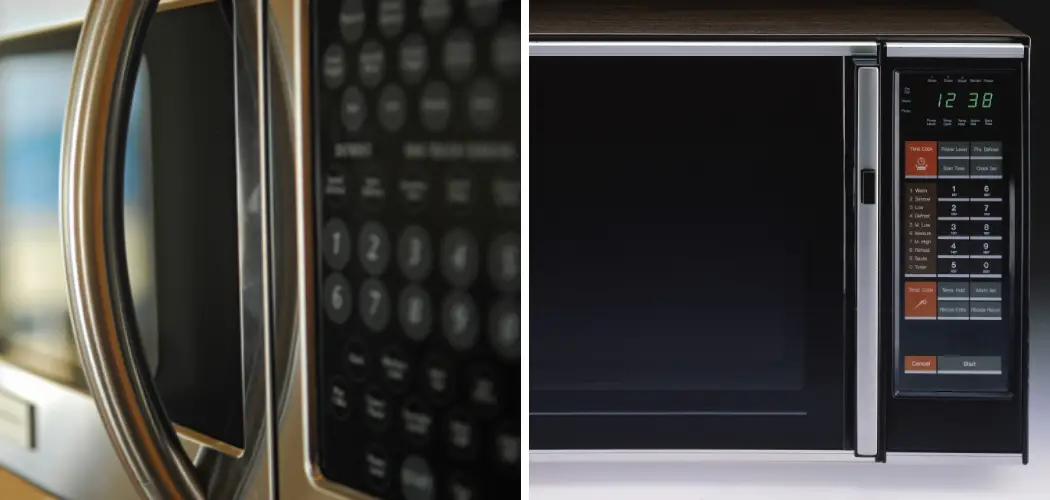Do you have a problem with your microwave interference with your wifi? It can be pretty frustrating when you’re trying to get online, and the waves from your microwave are blocking your signal. Fortunately, you can do a few things to minimize this issue. In this article, we’ll discuss how to stop microwave from interfering with wifi connections. Keep reading for more information!
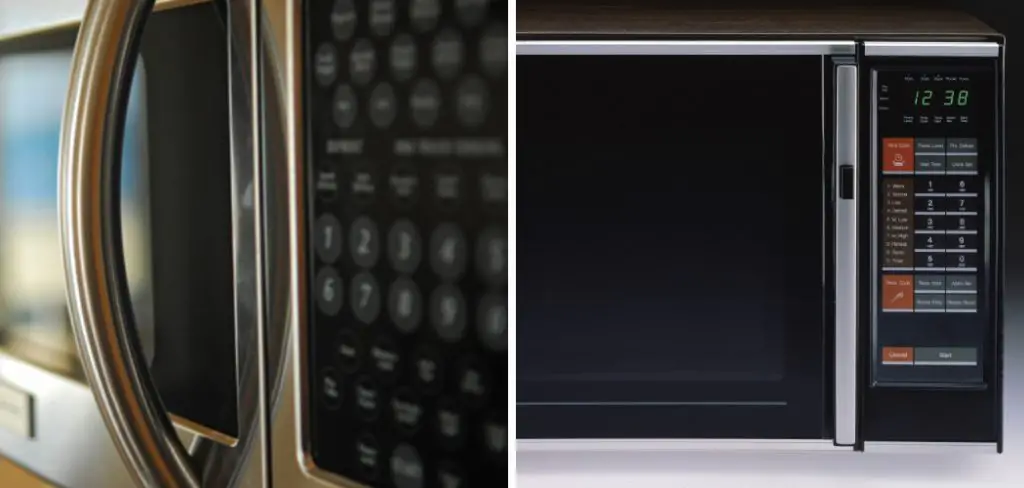
We live in a world where we are constantly surrounded by technology. We rely on it for work, school, and even entertainment. But what happens when that technology starts to fail us? One of the most frustrating things is when your microwave interferes with your wifi connection. It can be challenging to get online and do what you need to do when the waves from your microwave are blocking your signal. Fortunately, you can do a few things to minimize this issue.
What Is Electromagnetic Radiation?
Electromagnetic radiation is a type of energy emitted by electrically charged particles. This includes everything from x-rays and gamma rays to ultraviolet, visible, and infrared light. Microwaves are a type of electromagnetic radiation with a relatively long wavelength.
While all types of electromagnetic radiation can cause interference with electronic devices, microwaves are more likely to cause problems because of their longer wavelength. When microwaves interfere with electronic devices, it is called “electromagnetic interference” (EMI).
EMI can disrupt the normal functioning of electronic devices. For example, microwave ovens can cause interference with WiFi signals. This can result in a slower connection or even a complete signal loss.
Why Does Microwave Interfere With Wifi?
One of the most common questions we get here at the tech support hotline is, “why does microwave interfere with WiFi?” Well, the answer has to do with the way microwaves work. Microwaves emit electromagnetic radiation that is absorbed by water molecules. When these molecules are heated, they begin to vibrate, which causes the surrounding air to become hot.
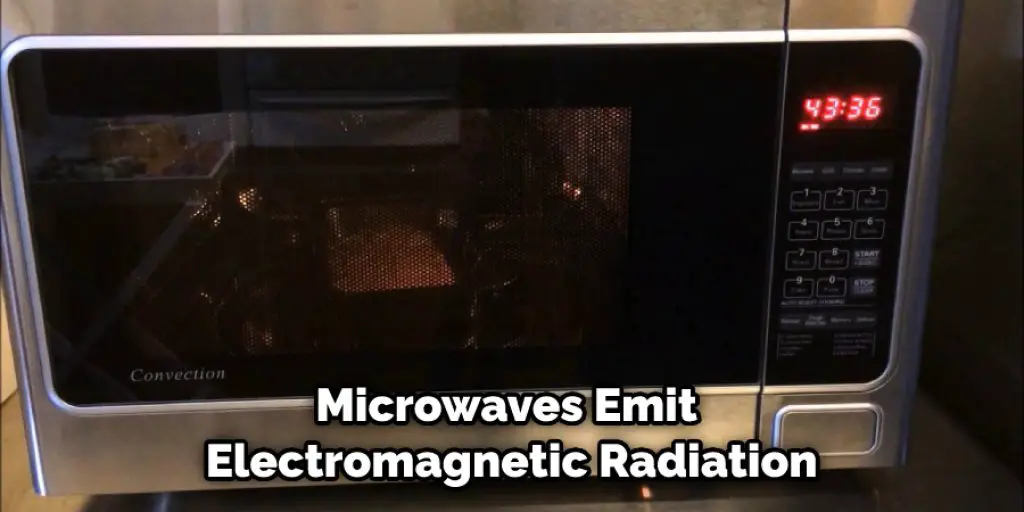
This process is known as dielectric heating, and it’s the same reason microwaves can heat food so quickly. However, this also means that microwaves can cause interference with WiFi signals. The waves emitted by microwave can disrupt the delicate balance of electrical and magnetic fields that allow WiFi to function correctly.
So, if you’re having trouble connecting to your wireless network, or if your signal keeps dropping, it’s possible that a microwave is to blame.
Understanding Electromagnetic Radiation
We are constantly surrounded by electromagnetic radiation (EMR). EMR is the name given to the energy transmitted through the air in the form of radio waves and microwaves.
While most forms of EMR are entirely harmless, some can be detrimental to our health. For example, too much exposure to microwave radiation has been linked to cancer.
Microwaves are a type of electromagnetic radiation with a very high frequency. They are used in many common household appliances, such as microwaves and wireless routers.
While microwaves are generally safe, they can interfere with your WiFi signal. This is because both microwaves and WiFi use the 2.4 GHz frequency band. When these two signals collide, it can cause problems with your WiFi connection.
If you’re having trouble with your WiFi signal, it’s worth checking to see if there are any microwaves in the area. If so, try moving your router to a different location, or turn off the microwave when you’re not using it.
Technical Viewpoint
A typical 2450-MHz microwave oven heats food with exciting water molecules. It does that by bombarding them with electromagnetic radiation at the same frequency. That radiation is absorbed and turned into heat.
The problem is that the same kind of electromagnetic radiation interferes with the 2.4GHz band used by many Wi-Fi devices, including routers and laptops equipped with 802.11g or 802.11n adapters. The interference is caused by the reflection of microwaves off metal surfaces inside the oven and direct leakage through the door seal.
The net result is reduced throughput on your wireless network while the microwave runs. You might see pages load more slowly, or you might have difficulty connecting to the network. The problem is most likely to occur when the microwave is near the router.
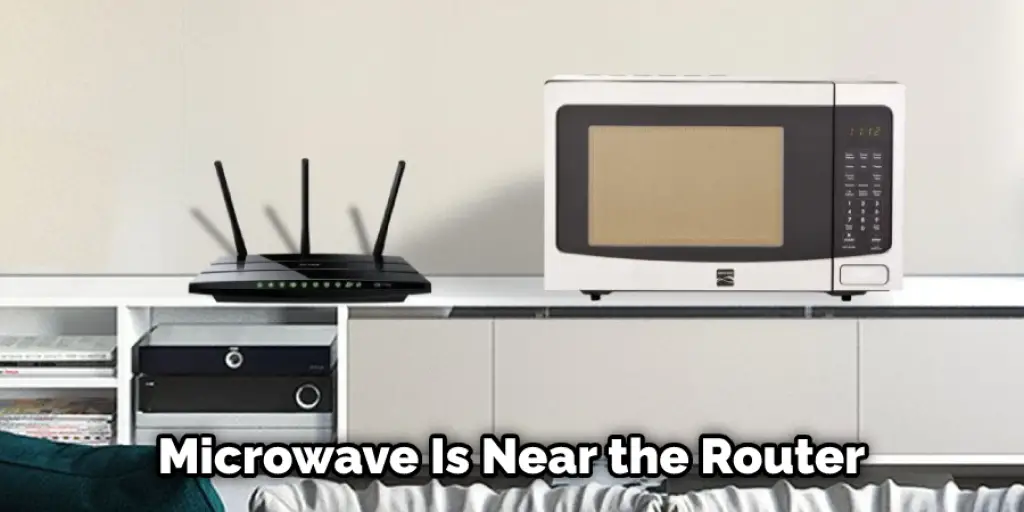
A Detailed Guide on How to Stop Microwave From Interfering With Wifi
Method 1: Switch to 5 GHz
If you have a dual-band router, the chances are that it broadcasts on two different frequencies: 2.4 GHz and 5 GHz. The 2.4 GHz frequency is more prone to interference from microwaves, cordless phones, and even Bluetooth devices. On the other hand, the 5 GHz frequency is less likely to interfere with these devices.
So, one of the first things you can do to reduce microwave interference with your WiFi signal is to switch your router to the 5 GHz frequency. This will help improve your WiFi signal quality and stability.
You’ll need to log into your router’s web interface and find the section where you can change the WiFi frequency. The location of this setting will vary depending on your router, so consult your router’s manual if you can’t find it.
Method 2: Move Your Router Away from the Microwave
If the previous method didn’t fix the issue, you can try moving your router away from the microwave. The closer the two devices are to each other, the more likely that interference will occur. So, by moving the router further away, you may be able to reduce or eliminate the problem.
To do this, unplug your router and move it to a different location in your home. You may need to experiment with other locations until you find one that works best. Once you’ve found a good spot, plug the router back in and see if the interference has been reduced or eliminated.
If you’re not sure where to place your router, here are a few tips that may help:
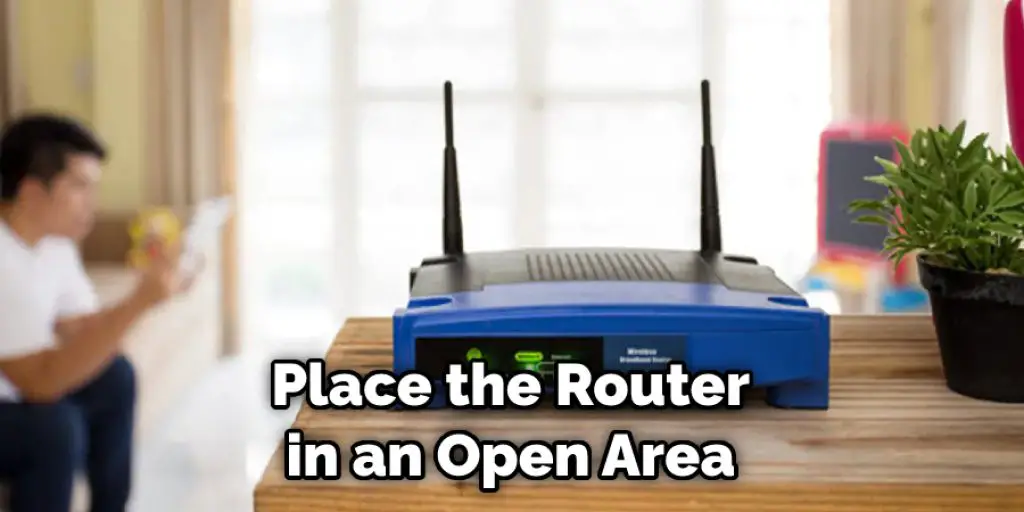
- Place the router in an open area. This will help ensure that signals can reach all parts of your home and reduce the likelihood of interference.
- Avoid placing the router near metal objects. Metal can block or reflect signals, which can cause interference.
- Avoid placing the router near devices that emit electromagnetic fields, such as microwaves, cordless phones, and TVs.
- If possible, place the router off the ground. This will help reduce interference from flooring materials like concrete and stone.
Keep in mind that the ideal location for your router may vary depending on your home’s layout and the type of interference you’re experiencing. So, it’s essential to experiment with different locations until you find one that works best. This is a crucial method how to stop microwave from interfering with wifi.
Method 3: Check for Interference From Other Devices
If you suspect that your microwave is interfering with your WiFi, you should first check for interference from other devices. Go to your router’s admin page and look for the “wireless” or “WiFi” section. Here, you should see a list of all the devices currently connected to your network. If you see any appliances that you don’t recognize or that have unusually high signal strength, there’s a chance they could be causing interference.
If you’re not sure how to access your router’s admin page, consult your manual or contact the manufacturer. Once you’ve found the page, look for a setting called “channel.” This will allow you to change the frequency of your router, which can often help with interference issues.
If you still suspect that your microwave is the culprit, try unplugging it and see if that makes a difference. If it does, you may need to find a new place for it in your home so that it’s not near your router. Microwave ovens are typically the biggest offenders when it comes to WiFi interference, but other devices can also cause problems. These include baby monitors, cordless phones, and even some LED lights.

Method 5: Upgrade your Firmware
If you’ve tried all of the previous methods and still have problems, you may need to upgrade your router’s firmware. Firmware is the software that controls your router, and it’s often responsible for ensuring that the device works properly. Over time, manufacturers release new versions of firmware that can help improve performance and address security vulnerabilities. So, if you’re experiencing interference from your microwave, upgrading to the latest firmware version may help solve the problem.
To upgrade your router’s firmware, you’ll need to log into your router’s admin page and find the “firmware” section. You should be able to get and install the latest version of firmware for your router. Once the process is complete, reboot your router and see if the interference has been reduced.
If you’re not sure how to upgrade your router’s firmware, consult your manual or contact the manufacturer.
You Can Check It Out To Cook Canned Black Beans in Microwave
Conclusion
If you are experiencing interference from your microwave, there are several things you can do to mitigate the issue. First, try moving your microwave further away from your router. Second, make sure that your router is in a central location in your home and not blocked by walls or furniture. Third, if possible, try changing the frequency of your router. Finally, consider purchasing a new router if none of these solutions work. We hope you have learned how to stop microwave from interfering with wifi.
You May Also Read: How to Wash Bed Buddy Microwave Heat Pack

